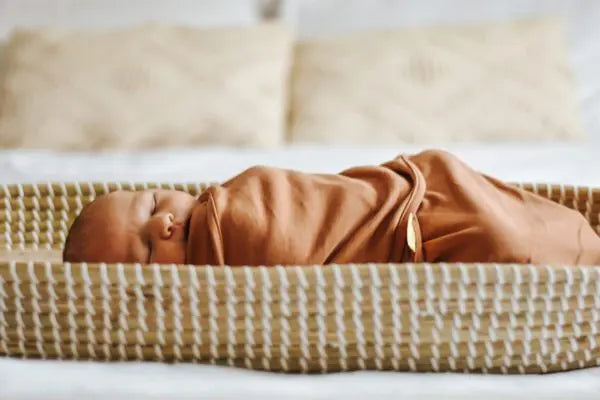When it comes to your child’s sleep it can often be challenging to sift through all the information that is out there-different schools of thought, approaches and expectations therein. As a practitioner, I really try to modify parental expectations where amounts of sleep and capability are concerned as I feel that it is very individual.
Whilst we can aim for certain amounts of sleep per age range, as prescribed by either the American Academy of Sleep Medicine or the National Sleep Foundation, I am at pains to point out that first of all, there is no gold standard per se, it is individual human behaviour-theirs and yours, and our task to help them get enough sleep, at the right time and of adequate quality, when possible.
To suggest that by a certain age, especially within the first few months of life, when sleep is largely immature, a child “should” be achieving a set amount of hours of sleep by day and night, generally serves to undermine the parent, leads to them second guessing themselves and then when they don’t reach this magic quota, the parent may feel that there have failed.
We will always aim for the suggested amount but understand and acknowledge that this is only a framework and best viewed as a bandwidth to aim within; rather that a definitive amount of time of such as the “12 hours per night”.

The whole concept of sleeping 7-7am or 2 hour + nap durations, whilst great if they happen, are not necessarily achievable for every child-the minority in fact. So, attempting to manage what your child is able to do and achieve could be more productive, together with a better understanding of terms such as “sleeping through the night” and what a suitable nap length actually might look be, based on age and developmental stage of the child.
Perhaps it is possible to help parents then re-frame their expectations, if necessary, within the recommendations and to avoid thinking that all sleep challenges experienced are a problem that need fixing, but rather a representation of typical childhood sleep and where your child is at.
I am always slow to use the words “should be” because every child really is different and their sleep ability will vary, but of course as you know, we can be continually nurturing our child’s sleep practises so that they ultimately reach their own personal sleep quota, whatever that may be at any given age.
An enormous source of frustration for many parents is their children’s day time sleep ability and the ongoing pursuit of an elusive “2 hour nap”-which to me is a bit like a unicorn-a myth if you will. Now, if your child does manage to achieve that nap amount- then wonderful- but if they don’t that is also ok and typical too, that is my point. I suggest that within the recommendations below, we might examine naps-the amount of them and the duration of same, together with mild expectations of the overnight period too.
National Sleep Foundation recommendations are as follows;
0-3 months 14-17 hours*
4-12 months 12-15 hours*
1-2 years 11-14 hours*
2-3 years 10-12 hours*
6-13 years 9-11 hours *Including naps when appropriate
These figures may be better digested in the following way: 0-3 months 14-17 hours littered in a 24 hour context with the high possibility of requiring feeds very 1-3 hours within this time frame-no real organisation to night time sleep but certainly becoming more defined or the potential to be, as they get closer to 3 months of age +.

Daytime sleep may comprise of a series (5-8) long and/ or short naps, balanced through the day/evening varying anywhere from 20-40 minutes to 2 or 3 hours depending on the child. Bedtime is generally still quite late until closer to 4 months and expectation of consolidated night time sleep would ideally be low, but wonderful if it happens.
Not sleeping for long periods, day or night, is incredibly typical and would be considered to be appropriate and not a true representation of your child’s future ability for sleep either.
At 4-12 months, your child’s nigh time sleep has the biological potential to become more organised and night time sleep may range from 10-12 hours depending on the child-whether they still wake and require feeding and/or comfort and reassurance would also be considered standard but a high expectation of longer stretches is appropriate certainly beyond 6-8 months of age.
Day time sleep after 6 months of age has the developmental potential to extend in terms of duration-nap tendencies of hopefully 40-45 minutes, together with at least one nap in the day ideally being 1 hour plus in duration is achievable too.
An earlier onset of sleep at bedtime now may mean, longer, deeper and more consolidated sleep can be anticipated hereon. It may not develop organically and may benefit from adjustments on the part of the parent to help improve same, but the potential exists.
When we discuss the concept of “sleeping through the night” we need to understand that no one sleeps through entirely, we all wake as we transition through our natural sleep phases-young children may always need reassurance, comfort and age-dependent feeding in the overnight period but with age: a greater ability to develop this skill emerges so that what we may see longer stretches of uninterrupted sleep-lower levels of parent input –and feeds, together with comfort and reassurance when needed are considered appropriate.
Many children will require night time feeding to at least 9 months (again if your child has shown a greater capability- then wonderful) but even to 12 months, depending on your feeding practise it is possible.
Naps will transition from 3 to 2 times per day around 8-9months +.
Note also, that as sleep is such a big separation from the parent, then comfort and support overnight can also be expected, but the ideal may be that your child is getting less interrupted sleep and a deeper, rested sleep now as they head to age 1.
Between 12-18 months many children start to need fewer naps having started off requiring anywhere from 5-8 naps a day at the start to a comfortable 2 naps per day by 8-9 months that further decreases to 1 single nap around 15-18months.
It would be hoped that the single nap would range from 1-2.5 hours or so by day, complimented by the 10-12 hours overnight-potentially without night time feeds biologically, but comfort and reassurance still appropriate may be applicable, depending on the child.
Certainly now, more consolidated sleep is desirable and minimised parental input both at bedtime and overnight can be achieved with a considerate and sensitive approach.
By age 3 many children will have relinquished the need to nap and now rely solely on the overnight sleep to reach their personal sleep quota, which as the figures suggest, ranges from 10-13 hours therein.
To ensure enough sleep now overall, earlier bedtimes may be suitable to ensure that based on their wake time, they have the opportunity to get enough sleep for their individual needs.
Largely with children, mood and behaviour can help you decide if your child is getting what they need in terms of sleep-if you feel that they would benefit from more sleep, then a sleep improvement approach can easily help you move closer to the suggestions, but without reaching for something that is just not there to be had...aka....huge nap durations and sleeping in until 7am weekday and 9am on a week-end!!!
Lucy Wolfe, HDip RM, MA is a Sleep Consultant, Co-Creational Relationship Mentor, Author of The Baby Sleep Solution and All About the Baby Sleep Solution, creator of “Sleep Through”, a natural bed and body sleep spray and relaxing rub, and Mum of four. She runs a private sleep consulting practice and online courses where she provides knowledge, expertise, and valuable support to families around the world. See www.sleepmatters.ie



Leave a comment
This site is protected by hCaptcha and the hCaptcha Privacy Policy and Terms of Service apply.